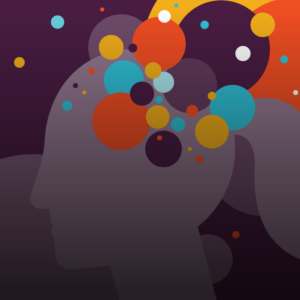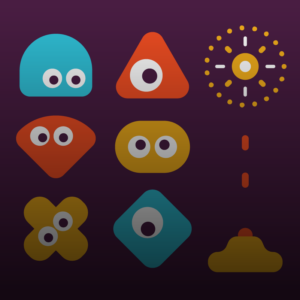We are all striving to become more inclusive because regardless of a person’s gender, ethnicity or background everyone has talent and potential. With more women working than ever before, gender equality is at the forefront of most HR professional’s minds. However, there is a lack of females in leadership positions, for instance, only 25 females are CEOs at Fortune 500 companies.
This imbalance can be observed across the workforce, with men and women respectfully dominating certain industries. For example, currently 80% of US software developers are men and 85% of social workers are women. But why is this the case? The effect of life domains on girls’ possible selves study suggests that culture, socialisation and gender role stereotyping discourages females from traditionally masculine subjects such as physics and mathematics. This may influence career choices later on, which further reinforces job role stereotypes. Therefore, these stereotypes based on gender can impact society heavily but the ever-growing change for equality will help open industries to all.
Will this ever change?
We are on the cusp of the fourth industrial revolution, and as a result, new technology such as AI and automation will transform industries and workforces. Employees will dedicate less time to routine tasks like data handling, focusing more on adding value to the company. More jobs will require a personal touch using interpersonal skills, creativity and problem-solving abilities which will favour humans over AI and other technologies. According to a study by PWC, women could initially be impacted by the development and implementation of AI and automation. However, in the long term, it is suggested that more males could be affected. This should inspire women to retrain or change career in order to stay ahead of the curve which may mean applying for roles they haven’t considered before.
Currently, there is a lack of females in STEM related fields. Our Chief Scientific Officer, Dr Boris Altemeyer, comments that: “You can only hire in a balanced way for diversity if the talent is there and they have been educated in that field.” As this industry grows, there will be even more roles available in STEM industries. Initiatives have been created to encourage women to take STEM subjects. If this is successful, more females will be hired in typical male dominated roles. This will also mean a more diverse applicant pool. But how can HR managers ensure they are hiring the best candidates for a role, regardless of whether a position is traditionally held by a male or female?
How can HR support this change?
More and more businesses are introducing AI into their recruitment process. There are many benefits to adopting this technology, it saves you time, money and people power whilst allowing you to find candidates who fit into your company’s culture and team as well as the role you’re recruiting for. AI technologies can enable you to create a fairer and more diverse recruitment process. As humans are naturally prone to bias, it can sometimes influence decisions the workplace. It is common within the recruitment process as you are judging candidates on a range of skills and attributes to match the job role. However, factors such as gender and culture should not affect applying for a job (read our blog to find out more). AI removes the bias created by humans as it has the capacity to be completely objective.
“If AI doesn’t empower women, then we are doing it wrong”
Dr Boris Altemeyer
It is possible to create a recruitment process that is fair for all. But how do you define ‘fair’? Even if you programme AI software to identify the best candidates with a 50:50 gender split, it may still not be entirely fair. For instance, an applicant pool could have a larger amount of stronger female candidates. Therefore, not only would these qualified applicants miss out on this job opportunity, but the organisation wouldn’t necessarily be hiring the best candidates for the role. Dr Boris Altemeyer also reveals that “The AI needs to learn what is fair and balanced. We need to agree what we tell the AI to do in order to get the best possible outcome.”
At Cognisess, we remove biases by making it optional for candidates to disclose age, gender, race or even the schools they attended. More significantly, this personal information is never considered in Cognisess’ set of assessments. Our system is mostly interested in assessing how your brain works. From this, recruiters can focus purely on what matters when hiring an applicant. This is called blind recruitment and it provides decision makers with an in-depth understanding of a candidate’s suitability for the role regardless of background, age, gender or ethnicity. This creates an environment for recruiters to make objective and well-informed decisions about a candidate’s potential.
Creating equal opportunities for all with AI
At Cognisess, we are constantly pursuing a fair recruitment process for all. We recently investigated if gender bias was present in one of our client’s hiring processes. Although more male applicants applied for their graduate scheme, more female candidates were successful. When candidates were asked to complete a variety of cognitive, emotional, personality Cognisess assessments, there was no bias present. The number of passed and rejected candidates reflected the difference in applicant volume of each gender. The final stage of the graduate process was a video interview. The gender was revealed in this section of the process due to the video aspect. However, in this part of the process female applicants were more likely to pass this stage than males. This could be an indication of higher presentation skills in female candidates, but it could also reflect a subtle bias in the human assessors marking the video interviews.
This shows the effect humans could have on a recruitment process. It is important to note that bias can happen towards any group of people, including males. This is why it is important HR teams constantly refines this in order to truly hire the best applicants.
Initially, women will be the most affected by the fourth industrial revolution. But this could be an opportunity for them to step outside stereotypical female roles and realise their potential. With a more diverse applicant pool organisations will need to ensure they have a recruitment process in place that is fair for all. If you would like to discuss how AI and People Analytics can enhance your recruitment process, book a free demo with our expert team.


